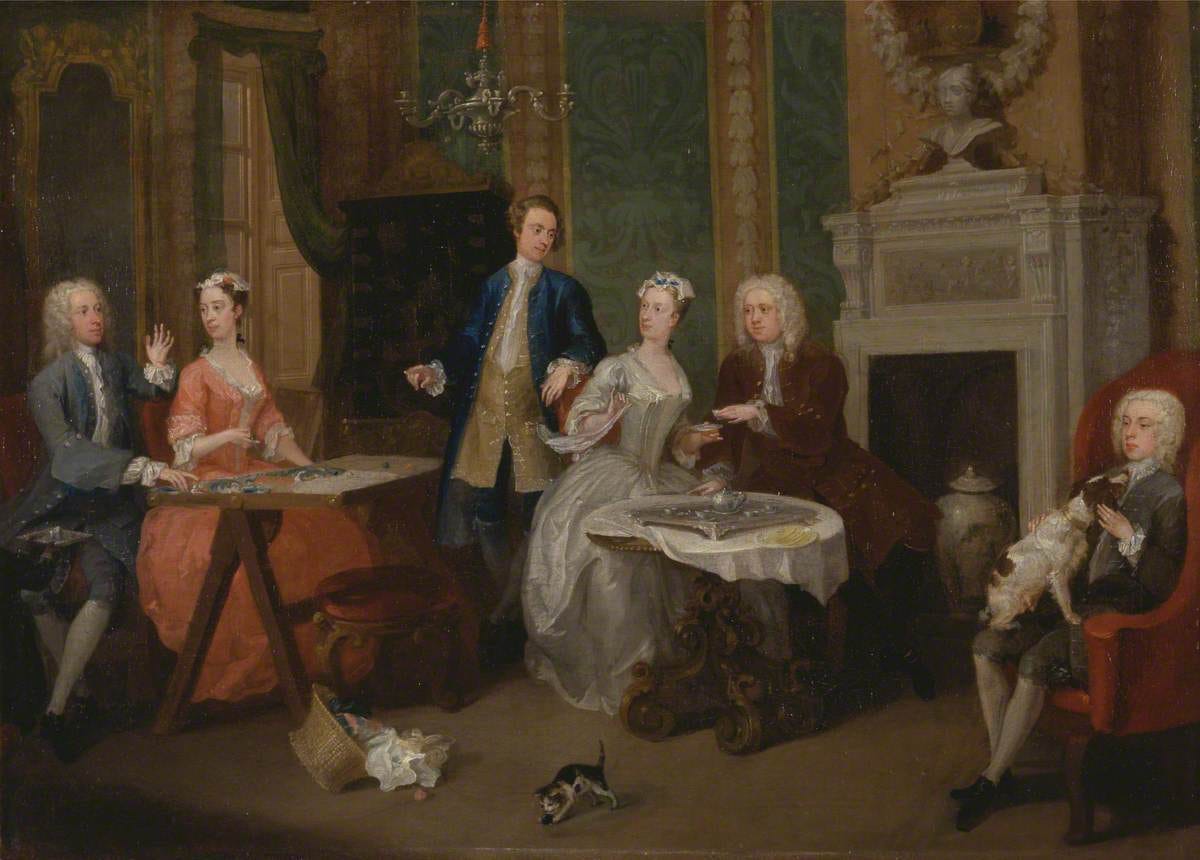“You will be confined, and prohibited making teasing appeals to any of us: and we shall see who is to submit, you or everybody to you!”
Dear friends,
I’m sorry to say we’re becoming witnesses to a very ugly power struggle. No-one is listening to our poor Clarissa. It’s impossible to argue with her parents’ concept of duty, which requires Clarissa to submit to any of their wishes, no matter how damaging or long-lasting the effects. Asking to be heard is as good as dissent in their eyes. “To desire to be forgiven for a fault you own, and yet resolve to persevere in, is a boldness, no more to be equalled than passed over,” writes her father. Shocking.
Clarissa’s view: “I can no more defend myself, than if I were dead.”
It’s becoming clear just how much control a family like Clarissa’s is able to exert over their daughters and I can’t help wondering how common this might have been during Richardson’s time. In this week’s letters, Clarissa’s family threaten to exploit the “flaws” in her grandfather’s will, depriving her of the inheritance; worse still they now alienate her from family life and the friendship of those near. She is being squeezed by the claim she is ruining her father’s health, perhaps even bringing him close to death. The family make the marriage to Solmes seem unavoidable, telling Clarissa that the settlement papers are almost complete and her trousseau ready. The notion of women as property - first of their fathers and then of their husbands - bleeds through all of this. Clarissa herself balks at the idea women can be won over by material goods:
“Female minds, I once heard my brother say, that could be brought to balance on the change of their state, might easily be determined by the glare and splendour of the nuptial preparations and the pride of becoming mistress of a family.”
Clarissa is well aware, of course, that becoming mistress of a family doesn’t grant one a great deal of power. Her mother is a case in point and, I think, one of the most interesting characters so far. This week we’ve read a very revealing letter from mother to daughter (25:2) which demonstrates the motherly tenderness Clarissa has been longing for. But mother Harlowe simply can’t win - Clarissa thinks her too harsh, while her husband believes she’s too indulgent. Interestingly, Anna thinks Clarissa’s mother is partly responsible for her own oppression, by being too meek from the beginning, too yielding. “What must have been her treatment, to be thus subjugated?” she asks. There’s an interesting discussion about mothers and their influence in Anna’s letter (number 27). Meanwhile Clarissa laments:
“What pity, that meekness and condescension should not be attended with the due rewards of those charming graces!”
Clarissa’s mother even blames her for receiving Lovelace’s letters - as if she can help who chooses to send her mail. At the same time, we’re seeing how expectations of women and the behaviour of lovers trap Clarissa in a difficult situation:
“I suppose it is the way of his sex to endeavour to entangle the thoroughness of ours by bold supposes and offers, in hopes that we shall be too complaisant or bashful to quarrel with them; and if not checked, to reckon upon our silence as assents voluntary given, or concessions made in their favour… It is easy to see that if I do not break it off, Mr Lovelace’s advantages by reason of my unhappy situation will every day increase, and I shall be more and more entangled.”
Could Clarissa be admitting she is vulnerable to Lovelace’s advances? She admits to a curiosity about him, but either way, it seems she has little faith in love:
“These men my dear, with all their flatteries, look forward to the PERMANENT. Indeed, it is fit that they should. For love must be a very foolish thing to look back upon.”
It’s a sentiment her friend Anna shares:
“How charmingly might you and I live together and despite them all! — But to be cajoled, wire-drawn, and ensnared, like silly birds, into a state of bondage or vile subordination: to be courted as princesses for a few weeks, in order to be treated as slaves for the rest of our lives—”
The obvious solution is to live as an independent woman. “Who indeed, as you say, would marry, that can live single?” writes Anna. She urges Clarissa to take back her estate, by legal means if necessary:
“I’d be in my own mansion, pursuing my charming schemes and making all around me happy… I’d let them know that I was their sister, and not their servant; and if that did not do, I would shut my gates against them; and bid them be company for each other.”
And yet Clarissa has already written (in letter 19) about the pitfalls of an independent life - the petty jealousies, the glee at one’s downfall. She is, as ever, keen to be a good person:
“If we suffer by an act of duty, or even by an act of generosity, is it not pleasurable on reflection that the fault is in others, rather than ourselves?”
By the time we reach the most recent letter (number 28), Clarissa seems pretty angry with Anna’s advice and criticisms of her grandfather. Despite a lovely meditation on friendship, could the first cracks in their relationship be appearing? And what might happen if they do?
Looking forward to hearing your thoughts on this week’s letters!
If you would like to follow our read-along please subscribe below, visit your Substack subscription settings and make sure Letters & Libations is checked.
Featured image is Portrait of a Family, 1735, by William Hogarth (1697–1764) courtesy of Yale Center for British Art

